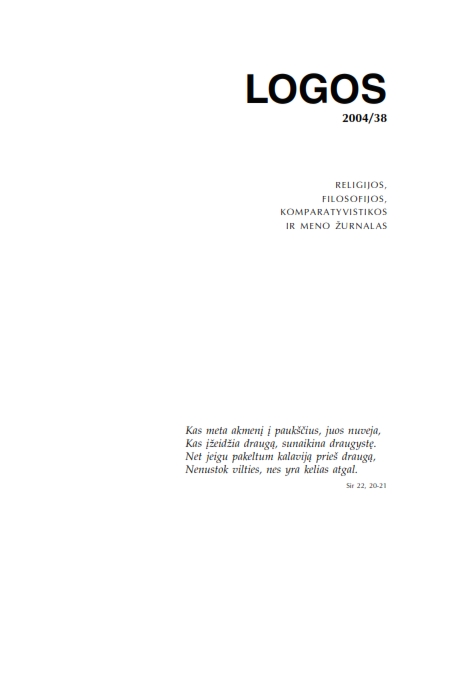Tragedijos mirties ir atgimimo motyvai F. Nietzsche's filosofijoje
Reasons for the Death and Rebirth of Tragedy in Nietzsche’s Philosophy
Author(s): Aušra PolovikaitėSubject(s): Logic, 19th Century Philosophy, Philosophy of Mind
Published by: Visuomeninė organizacija »LOGOS«
Keywords: Socrates; the death of tragedy; the rebirth of tragedy; Nietzsche;
Summary/Abstract: The article focuses on an analysis of the death and rebirth of tragedy in Nietzsche’s philosophy. Nietzsche says that the poet Euripides, believing that the light of reason should illuminate all important things, turned to a new voice in Greek life: the powerful inquiring spirit of the philosopher Socrates. Socrates represents a rational optimism which declares that all things can and must be known. The optimism of reason is the death of tragedy. But, according to Nietzsche, logic can never lead the human mind to the ultimate secrets of all things. In various ways Nietzsche repeatedly suggests that the rebirth of tragedy is accomplished in “Thus Spake Zarathustra”. Nietzsche holds this work to be “involuntary parody”. So tragedy is redeemed as parody. Nietzsche, then, is laughing at himself, his doctrine of eternal reccurrence and tragedy. This irony displaces any attempt to secure a new truth on the basis of his works.
Journal: LOGOS - A Journal of Religion, Philosophy, Comparative Cultural Studies and Art
- Issue Year: 2004
- Issue No: 38
- Page Range: 100-105
- Page Count: 6
- Language: Lithuanian

